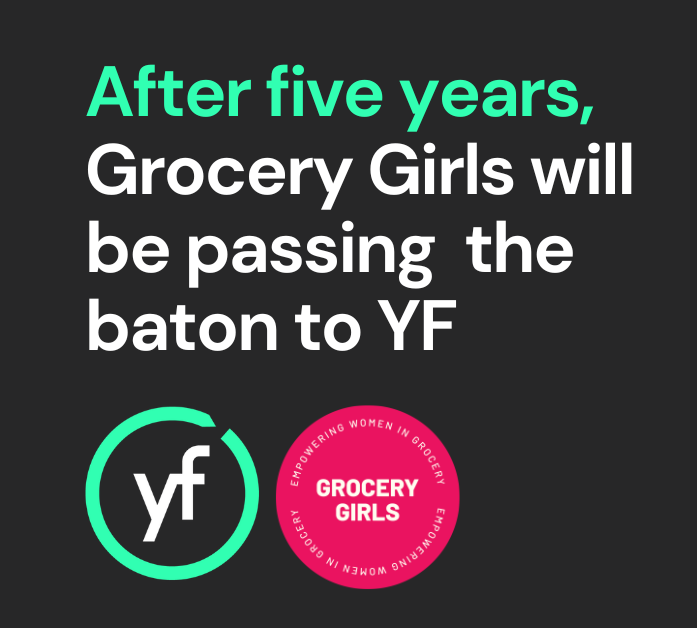
Subscribe to
YF mailing list
Subscribe today to keep informed of any important industry news and exclusive insights on how you can scale and strengthen your business.
The world of blue chips (the big businesses) is a totally different beast to the start-up space the brands in the Young Foodies community operate in. It’s easy to think they’re all speaking the same language, but, fundamentally, brains are trained very differently across the two environments.
We had a chat with Sam Akinluyi, ex Grocery Sales Director at Mars, to find out the difference between the big business mindset and that in the smaller businesses.
While at Mars I looked after a team of 30 and we were responsible for 65% of the sales of the Mars Chocolate division in the UK. That was split over grocery accounts and online including familiar names such as Tesco, Sainsburys, Morrisons, Co-Op, Waitrose and Asda. I had some punchy revenue targets to hit and was responsible for steering the team in the right strategic direction to achieve this. In a nutshell, my role was to create robust relationships with senior trading directors at the major multiples.
I had a great team supporting me at Mars, so when things were going well, my role was more about people management. On the odd occasion that something did go wrong I was still expected to get heavily involved. There was, however, always a substantial support structure in place to deliver success and the investment in people was commendable.
At Mars we had the task of managing perpetual demand, someone was always buying a Mars chocolate bar. A marginal gain in market share could be worth millions in cash value but very little in terms of % growth. In the start-up side of the industry you’re chasing exponential growth, double and triple digit year on year sales growth. That’s a very different challenge to chasing 4-5%.
It’s very hard to significantly screw up if you are managing a large blue-chip brand within their wider portfolio. Someone probably did a long time ago, I’m sure it wasn’t all smooth sailing for Forrest Mars.
In the blue-chip world, retailers need you as much as you need them, the balance of power is in play. Shoppers look for Key Value Items (KVI) that all stores must have, and the majority of these brands are owned by the major FMCG players. This can often mean that a commercial role at a corporate business can be more of a trading role than a relationship one.
That said, I got the most satisfaction from really being able to influence a person’s performance within the team. Building relationships is pivotal to succeed in business and, even more so in the startup world when it’s often all you have to play with.
I’ve always been in big business, Nestle, General Mills and Mars. Through all that time I never really felt like it was right, it didn’t feel 100% me. I came to the conclusion that I really wanted to be part of something that I can put my own stamp on, something that I’m sure motivates a lot of the YF members too.
I’m passionate about helping people that have a mission and purpose to be more commercially successful and I’m a firm believer that you can do good business and good things at the same time, they are not mutually exclusive.
I decided to find a way to balance personal passions with everything I do for a job every day and I didn’t feel that I could do that in a larger organization. In many blue-chips you are given a target and a clearly defined role, that wasn’t really doing it for me.
In a larger organization, you can choose when to put 110% in and when to take it a little easier. In a small business, giving anything less than 110% isn’t an option. A person must be ready to put it all on the line and in the early days feel as comfortable as possible with the ambiguity of what your next pay cheque will look like.
Someone needs to be saying ‘Yes’ a lot more than they say ‘No’. Approaching things with an open mind will get them much more embedded into the environment they’re working in.
I genuinely love the stories behind the brands. People come up with the most amazing ideas and I love seeing them come to fruition. The landscape is changing and retailers are taking note of the small food & drink space. It’s such an exciting time to be in this industry with more and more interest from the guys in corporate linking up with smaller innovative brands.
Subscribe to our mailing list to stay in touch with the latest news, insights and updates from YF.
Subscribe today to keep informed of any important industry news and exclusive insights on how you can scale and strengthen your business.
Our Preferred Suppliers are a selection of businesses that we have vetted and trust to recommend to our brands. We have negotiated discounts or deals with many of them.
Access to the list and discounts is a benefit to Community members only.
Not a member yet? Find out more here